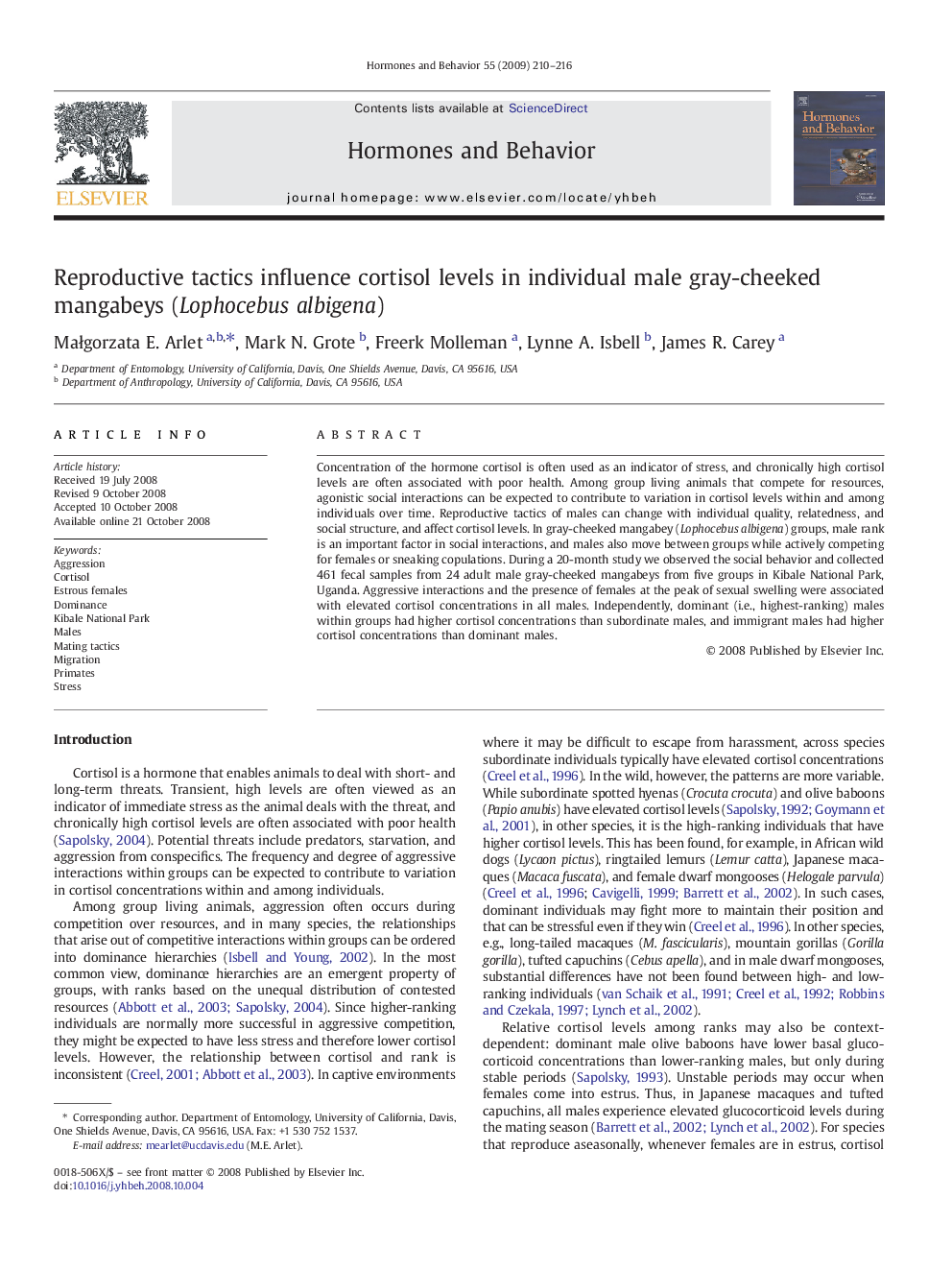| Article ID | Journal | Published Year | Pages | File Type |
|---|---|---|---|---|
| 323259 | Hormones and Behavior | 2009 | 7 Pages |
Concentration of the hormone cortisol is often used as an indicator of stress, and chronically high cortisol levels are often associated with poor health. Among group living animals that compete for resources, agonistic social interactions can be expected to contribute to variation in cortisol levels within and among individuals over time. Reproductive tactics of males can change with individual quality, relatedness, and social structure, and affect cortisol levels. In gray-cheeked mangabey (Lophocebus albigena) groups, male rank is an important factor in social interactions, and males also move between groups while actively competing for females or sneaking copulations. During a 20-month study we observed the social behavior and collected 461 fecal samples from 24 adult male gray-cheeked mangabeys from five groups in Kibale National Park, Uganda. Aggressive interactions and the presence of females at the peak of sexual swelling were associated with elevated cortisol concentrations in all males. Independently, dominant (i.e., highest-ranking) males within groups had higher cortisol concentrations than subordinate males, and immigrant males had higher cortisol concentrations than dominant males.
